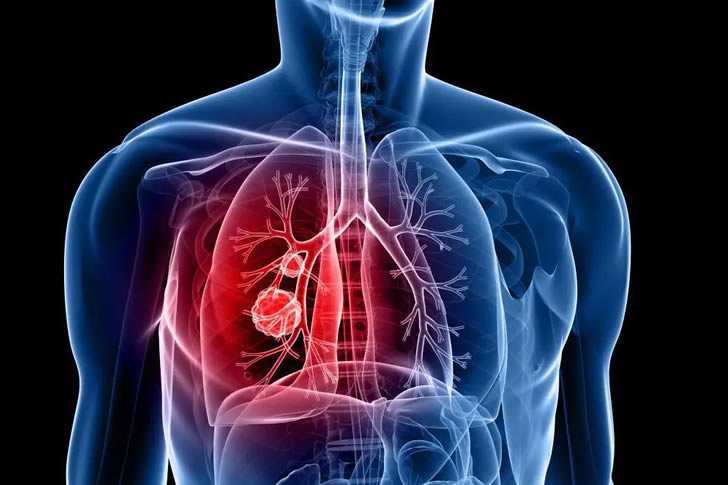The Effectiveness of Radiation Therapy and Immunotherapy for Cancer
Radiation therapy and immunotherapy are two of the most common treatments for cancer. Their effectiveness varies depending on the type and stage of cancer, but both have shown significant success in improving patient survival rates.

FAQs on Radiation Therapy and Immunotherapy
Q: What is radiation therapy?
A: Radiation therapy uses high doses of radiation to kill cancer cells or shrink tumors. It is a local treatment, targeting the specific area where the cancer is present.
Q: What is immunotherapy?
A: Immunotherapy harnesses the body’s immune system to fight cancer. It works by stimulating the immune system to target and destroy cancer cells or by providing it with additional components to enhance its ability to fight cancer.
Q: How effective are these treatments for cancer?
A: Both radiation therapy and immunotherapy have proven to be highly effective for certain types of cancer, particularly in combination with other treatments like surgery or chemotherapy.
Q: What types of cancer respond best to radiation therapy?
A: Cancers such as lung cancer, breast cancer, and prostate cancer often respond well to radiation therapy.
Q: What types of cancer respond best to immunotherapy?
A: Immunotherapy has been particularly successful in treating cancers such as melanoma, kidney cancer, and non-small cell lung cancer.
Survival Time After Radiation Therapy/Immunotherapy for Different Types of Cancer
| Type of Cancer | Treatment | Average Survival Time After Treatment |
|---|---|---|
| Melanoma | Immunotherapy | 2-5 years (advanced cases) |
| Lung Cancer | Radiation Therapy | 1-2 years (late-stage) |
| Breast Cancer | Radiation Therapy | 5-10 years (early-stage) |
| Bladder Cancer | Immunotherapy | 2-3 years (advanced cases) |
| Kidney Cancer | Immunotherapy | 1.5-3 years (metastatic cases) |
| Hodgkin Lymphoma | Radiation Therapy | 10-15 years (early-stage) |
| Liver Cancer | Immunotherapy | 1-2 years (advanced cases) |
| Colorectal Cancer | Radiation Therapy | 5-10 years (localized) |
| Ovarian Cancer | Immunotherapy | 3-5 years (advanced cases) |
How Effective is Radiation Therapy?
Radiation therapy is one of the cornerstones of cancer treatment. Its effectiveness depends on several factors, including the type of cancer, its location, and how advanced it is. The goal is to either completely destroy the tumor or reduce its size, making other treatments, such as surgery, more effective.
- Localized Treatment: Radiation targets cancer cells in specific areas, making it effective for cancers that have not spread.
- Improved Survival Rates: For many cancers, radiation therapy significantly improves survival rates when combined with other treatments.
- Side Effects: Side effects can include fatigue, skin changes, and localized discomfort, but advances in technology have reduced these effects.
Benefits of Radiation Therapy:
- Highly effective for localized cancers
- Often used alongside surgery or chemotherapy
- Can be curative in early-stage cancers
Drawbacks of Radiation Therapy:
- Side effects in the targeted area
- Ineffective for metastatic cancers
- Requires multiple sessions over time
How Effective is Immunotherapy?
Immunotherapy is a more recent development in cancer treatment. It has shown remarkable success in treating cancers that were previously difficult to manage, such as advanced melanoma and lung cancer.
- Boosts the Immune System: Immunotherapy enhances the body’s ability to recognize and attack cancer cells.
- Long-Term Remission: For some cancers, immunotherapy can lead to long-term remission, even in advanced stages.
- Fewer Side Effects: Immunotherapy generally has fewer side effects than chemotherapy, although it can cause flu-like symptoms and, in rare cases, autoimmune reactions.
Benefits of Immunotherapy:
- Effective for advanced cancers
- Can lead to long-term remission
- Often used when other treatments fail
Drawbacks of Immunotherapy:
- Not effective for all types of cancer
- Response times can vary; not all patients respond
- Expensive and may require long-term treatment
Statistical Analysis of Treatment Effectiveness
Average Survival Rates After Radiation Therapy and Immunotherapy
| Type of Cancer | Radiation Therapy (Survival Rate) | Immunotherapy (Survival Rate) |
|---|---|---|
| Melanoma | N/A | 30-50% |
| Lung Cancer | 15-25% | 20-35% |
| Breast Cancer | 85-95% (early-stage) | N/A |
| Bladder Cancer | 50-60% | 40-45% |
| Kidney Cancer | N/A | 25-30% |
| Hodgkin Lymphoma | 90% (early-stage) | N/A |
| Liver Cancer | 20-30% | 15-25% |
| Colorectal Cancer | 65-80% (localized) | N/A |
| Ovarian Cancer | N/A | 25-35% |
Visual Representation of Survival Rates
- Melanoma: Immunotherapy improves survival rates dramatically compared to other treatments for advanced cases, especially with new drugs like pembrolizumab.
- Lung Cancer: Radiation therapy is more commonly used in localized lung cancers, while immunotherapy works for advanced non-small cell lung cancer.
- Breast Cancer: Radiation therapy is highly effective in early stages, improving overall survival by up to 95%.
- Bladder Cancer: Both radiation and immunotherapy can improve survival, but immunotherapy shows promising results for advanced cases.
Conclusion
Both radiation therapy and immunotherapy have become essential components in the fight against cancer. Radiation therapy is highly effective for localized cancers and is often curative in early stages, while immunotherapy shows significant promise for advanced cancers, particularly those that were once difficult to treat. By understanding the strengths and limitations of each treatment, patients and healthcare providers can make informed decisions about cancer care.
Sources







Recent Comments